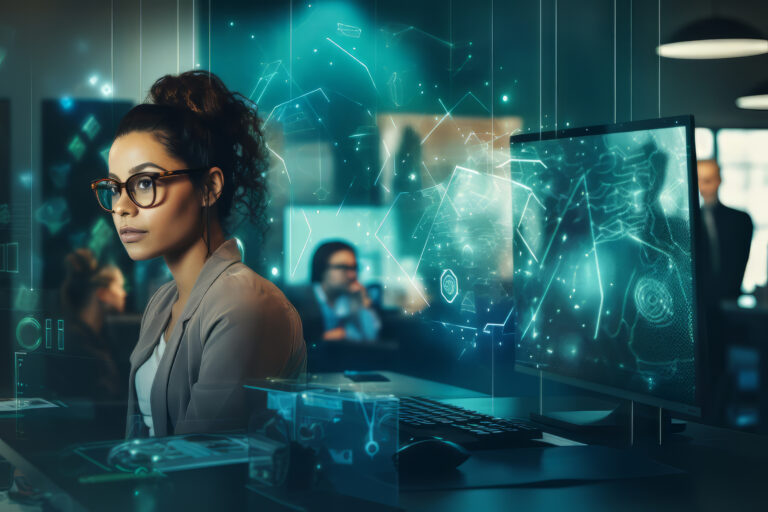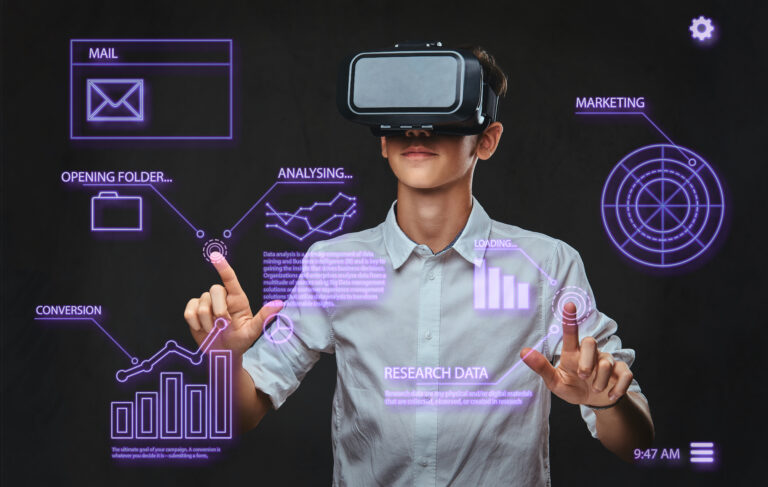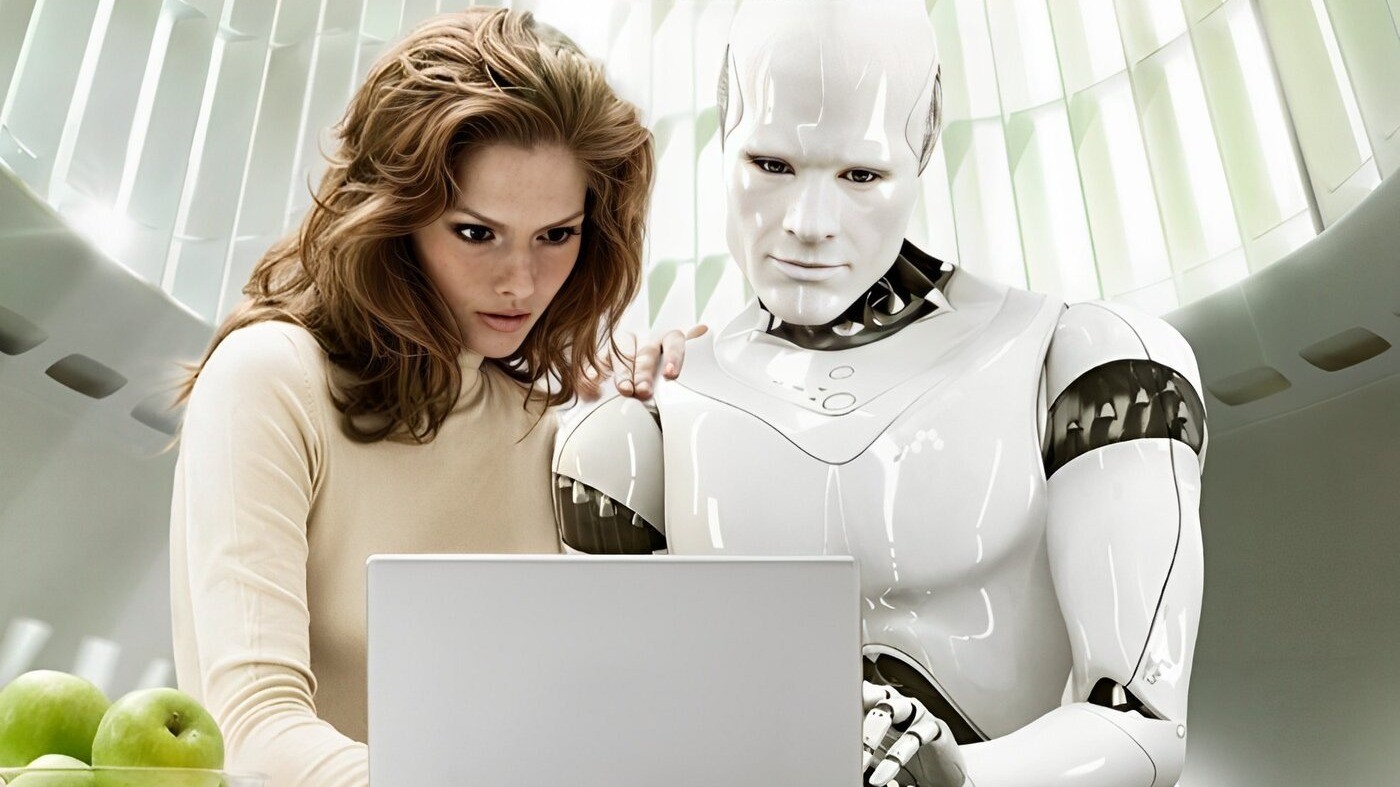Have you ever wondered what’s really behind the Artificial Intelligence (AI) revolution ? While many celebrate its innovations and promises of a bright future, there’s a hidden reality that few are willing to reveal. Get ready to learn the secrets, risks and surprising implications that AI can bring – and that no one wants you to know!
Far Beyond the Glitter of Technology
AI is everywhere. It powers social media, personalizes our shopping experiences, revolutionizes medicine, and even drives self-driving cars. Sounds incredible, doesn’t it? But behind all this innovation there are truths that can be shocking to those who still believe that AI is just a harmless, magical tool. In this article, we will reveal less discussed aspects, risks, and ethical challenges, as well as how this technology can impact your privacy, freedom, and, who knows, the very future of humanity.
Imagine a world where your decisions are shaped by algorithms you don’t even know how they work. Where the collection and use of personal data becomes a bargaining chip for corporations and governments. This is the flip side of the AI coin – one that can be as powerful as it is troubling.
1. The Data Explosion: Its Past, Present and Future at Risk
Mass Data Collection
For AI to work, it needs data – and lots and lots of it. Every click, every like, every internet search is recorded and analyzed. But what you may not know is just how invasive this data collection can be.
-
Constant Monitoring:
Tech companies and advertisers collect data about your habits, preferences, location, and even your conversations. This goes far beyond offering personalized recommendations – it’s about creating a detailed digital profile of each individual. -
Commercial and Political Use:
This data is not only used to improve the user experience. It is sold, shared, and in some cases used to manipulate behavior and influence political decisions.
Privacy Risks
Imagine having your personal information, from your spending habits to your political views, analyzed by algorithms that determine which ads you will see or even which opportunities you will be offered. This reality raises serious questions about privacy and control over your own digital identity.
-
Leaks and Hacks:
With so much information in circulation, the risk of leaks increases significantly. Sensitive data can be exposed in cyberattacks, damaging your security and reputation. -
Control and Consent:
Often, you don’t even know you’re being monitored. And even when you are informed, consent options are limited and, in some cases, virtually nonexistent.
2. Automated Decisions: When the Machine Takes the Reins
The Power of Algorithms
AI is capable of making decisions based on data analysis at unimaginable speeds. But are these decisions always fair and accurate?
-
Machine learning algorithms:
These learn from historical data to predict future behavior. However, if the data used to train these algorithms contains biases (and most do), the results can be deeply unfair and discriminatory. -
Decisions in Seconds:
Imagine a credit system that analyzes your financial history in fractions of a second and decides whether you’re worthy of a loan—or, more frighteningly, whether you’re considered a risk. This could affect employment opportunities, access to services, and more.
The Black Box of Algorithms
One of the biggest criticisms of AI is its “black box” nature. Often, even the developers themselves cannot explain how an algorithm arrived at a particular decision. This lack of transparency can create distrust and make it difficult to hold people accountable.
-
Lack of Explainability:
If you don’t understand how a decision was made, how can you question its validity? This opacity is one of the biggest ethical challenges in AI. -
Manipulation and Power:
Opaque algorithms can be manipulated to favor certain interests – whether commercial or political – without the public knowing what is happening behind the scenes.
3. Impact on the Labor Market: Replacement or Transformation?
Automation and Unemployment
AI promises to increase efficiency and reduce costs, but this comes at a significant social cost: replacing workers with machines.
- Job Replacement:
Repetitive and analytical tasks can be automated, leading to job reductions in traditional sectors. - Skills Transformation:
As some jobs disappear, new ones will emerge – but they will require skills that many current workers may not have, increasing inequality and the need for constant reskilling.
The Uncertain Future of Work
This transformation can be both an opportunity and a challenge. For entrepreneurs, AI can mean increased productivity and innovation. For workers, however, it can represent the need for intensive retraining to remain relevant in an increasingly technological market.
- The Duality of Progress:
The advancement of AI can boost the economy and create new opportunities, but it can also generate a social crisis if the transition is not accompanied by effective education and professional retraining policies.
4. Ethics and Responsibility: Who is the Real Owner of the Decision?
Ethical Issues in AI Implementation
The integration of AI into various areas raises ethical questions that need to be discussed openly.
-
Responsibility for Decisions:
In a scenario where algorithms decide on credit, hiring or even medical treatments, who is responsible for possible errors? The developers, the companies or the automated system itself? -
Bias and Discrimination:
Biased data can lead to discriminatory decisions. It is essential that algorithms are audited and that there is transparency to avoid injustice.
The Role of Institutions and Governments
Mitigating ethical risks requires a joint effort between developers, companies, governments, and society. Strict public policies and regulations must be implemented to ensure that AI is used fairly and ethically.
-
Legislation and Regulations:
Countries around the world are beginning to create regulations for the use of AI, but the speed of innovation often outpaces the ability of lawmakers to keep up. -
Transparency and Audit:
Implementing auditing and explainability mechanisms in algorithms is essential to build a foundation of trust and ensure that technology is used for the common good.
5. The Hidden Reality: What No One Wants You to Know
Little-Known Secrets and Risks
While the media and experts celebrate the benefits of AI, there are truths that are rarely discussed publicly.
-
Information Manipulation:
Algorithms can be used to create fake news, manipulate opinions and influence behavior on a large scale. This manipulation has profound implications for democracy and freedom of expression. -
Surveillance and Control:
Governments and large corporations can use AI to monitor and control the population, creating a scenario of constant surveillance where privacy is almost non-existent. -
Technological inequality:
Access to AI technologies is not equal for everyone. While large companies and developed countries are advancing rapidly, many regions remain on the sidelines, increasing global inequality.
The Dark Side of Innovation
Make no mistake – AI is not a magic bullet that solves all problems. It comes with a price tag, and it’s crucial that we are aware of the risks and challenges associated with it. Knowing the shocking truth about AI is the first step to using it consciously and responsibly.
Prepare for a Smart – and Vigilant – Future
Artificial Intelligence is reshaping the world in surprising and sometimes alarming ways. If you’re ready for the future, it’s essential to understand not only the promises and benefits, but also the risks and challenges that come with this revolution.
-
Innovation with Responsibility:
AI-driven transformation can open up new opportunities, but requires a critical and vigilant approach to ensure it is used ethically and fairly. -
Education and Awareness:
Being informed about the real impacts of AI is crucial to making informed decisions – whether as a consumer, professional or citizen. -
Engagement and Debate:
Society needs to openly debate the limits and possibilities of AI. Only then will we be able to shape a future where technology is an ally of human progress and not a tool of oppression.
The shocking truth about AI is that behind all the innovation and automation, there are risks and challenges that could profoundly transform our society. But knowing these secrets is the first step to preparing and acting consciously. The future is intelligent – and it’s up to you to decide if you’re ready to embrace it with your eyes open!








